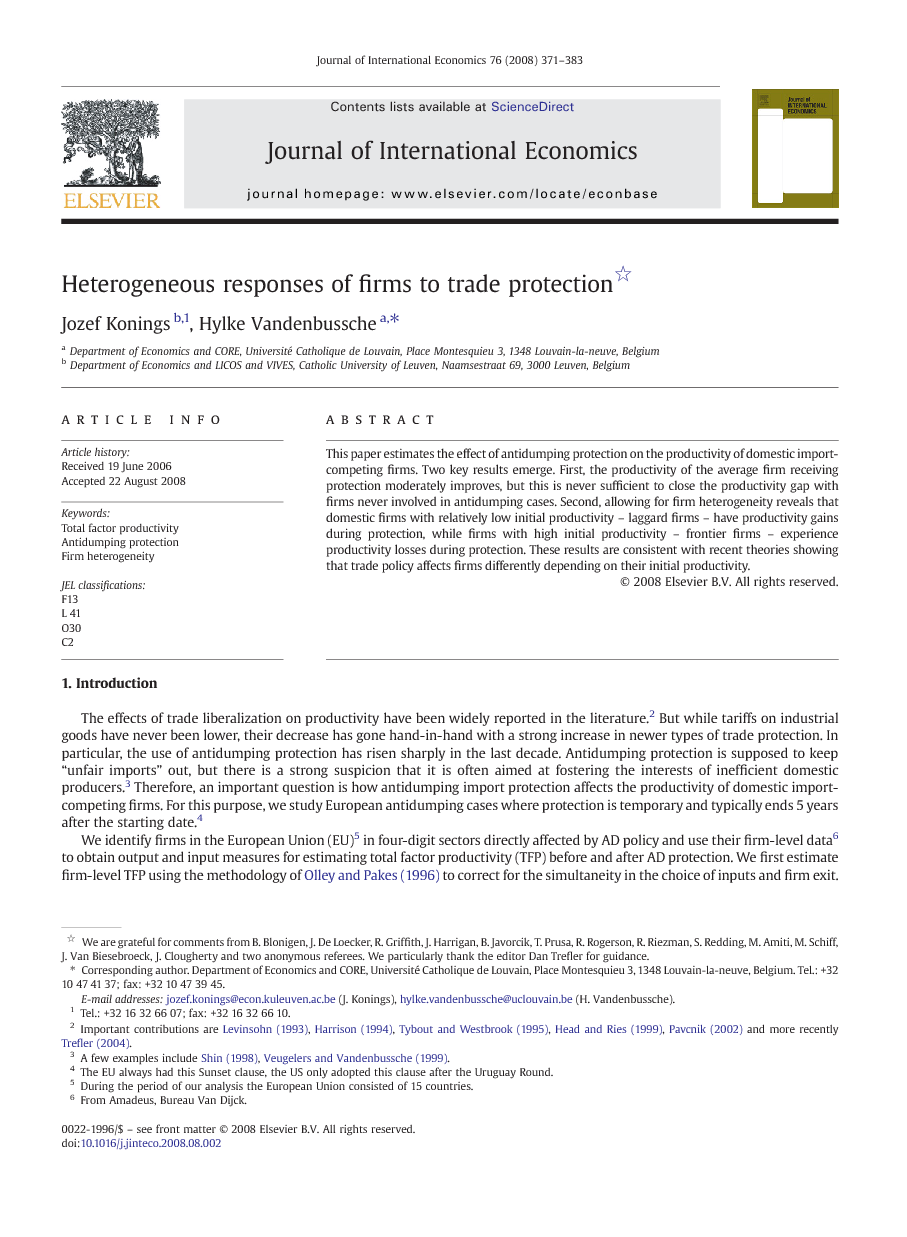ترجمه فارسی عنوان مقاله
پاسخ ناهمگن شرکت ها به حفاظت تجارت
عنوان انگلیسی
Heterogeneous responses of firms to trade protection
| کد مقاله | سال انتشار | تعداد صفحات مقاله انگلیسی |
|---|---|---|
| 11897 | 2008 | 13 صفحه PDF |
منبع

Publisher : Elsevier - Science Direct (الزویر - ساینس دایرکت)
Journal : Journal of International Economics, Volume 76, Issue 2, December 2008, Pages 371–383
ترجمه کلمات کلیدی
- بهره وری کل عوامل - حفاظت - عدم تجانس شرکت
کلمات کلیدی انگلیسی
Total factor productivity,Antidumping protection,Firm heterogeneity

